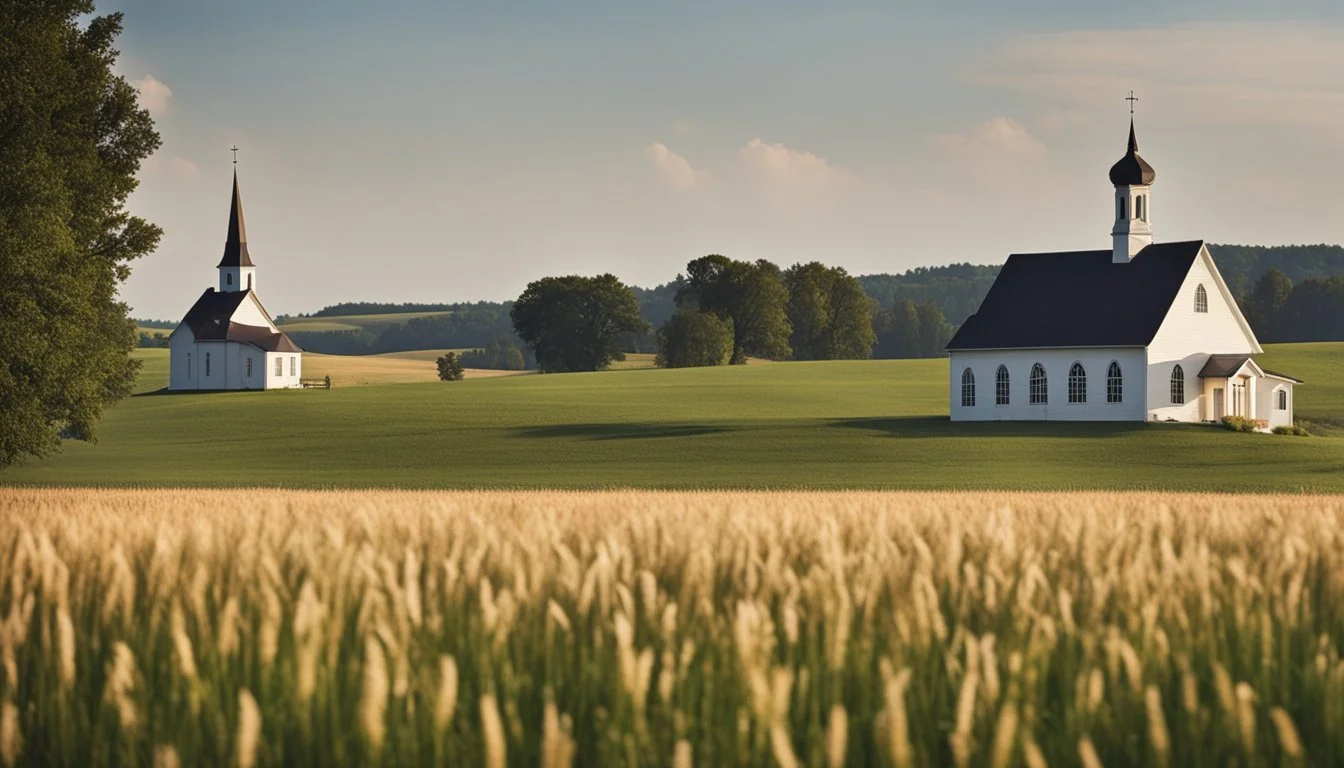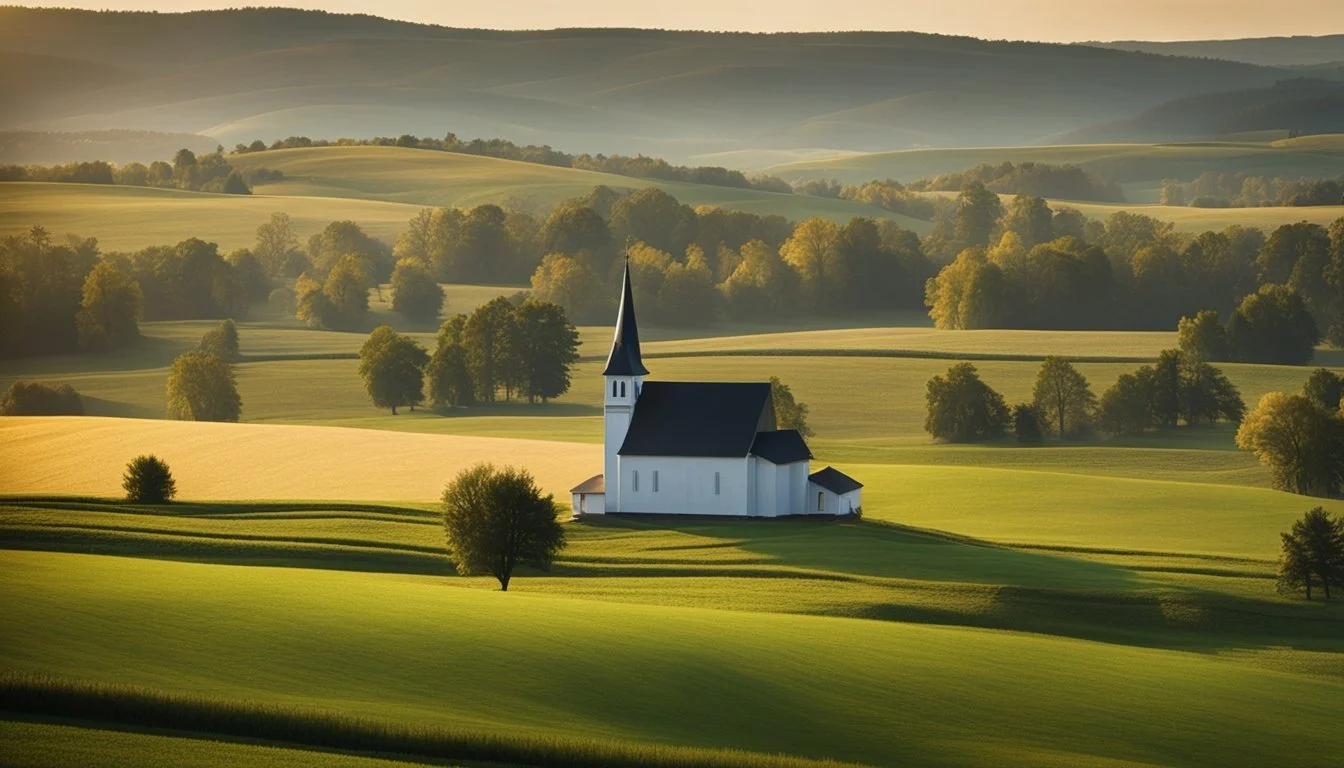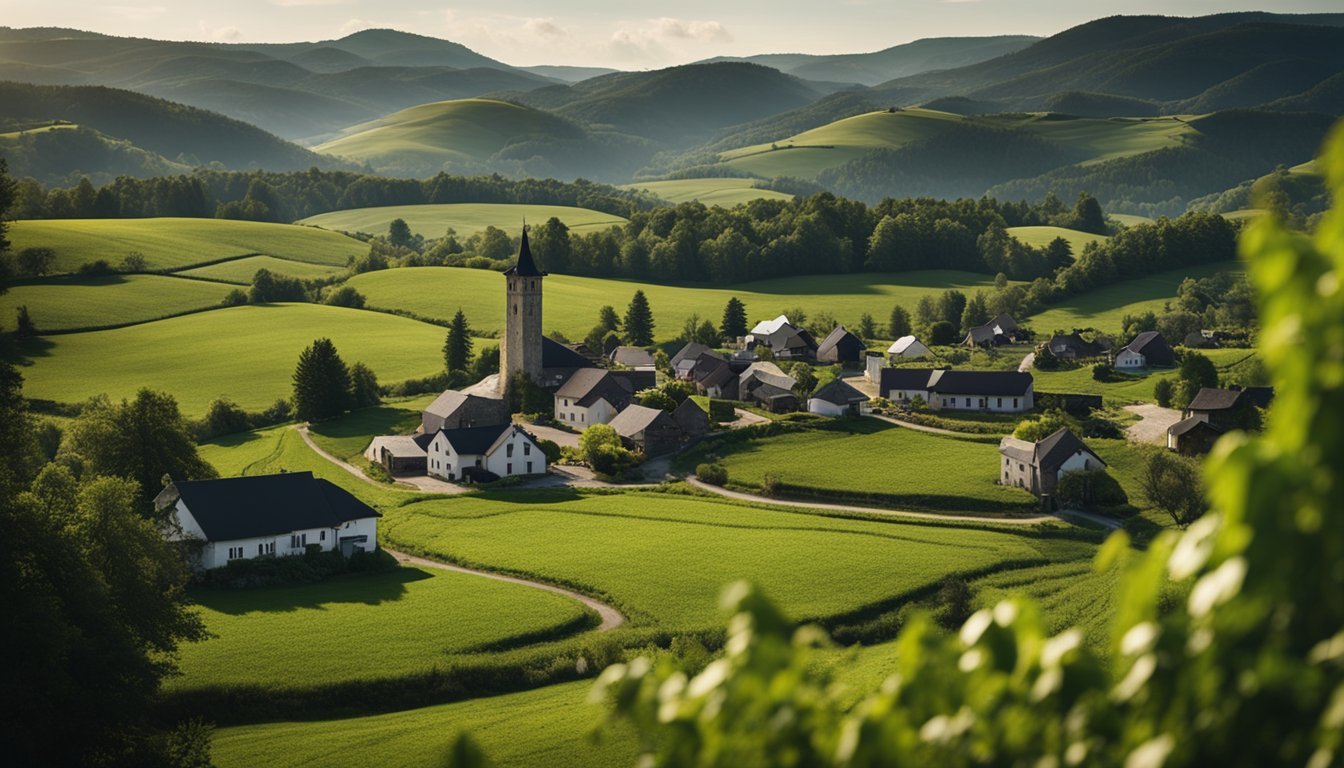8 True Crime Documentaries About Mennonite Communities
Uncovering Hidden Stories
True crime documentaries exploring Mennonite communities shed light on the often hidden facets of these insular societies. These films delve into the complexities and challenges faced by individuals within these groups, providing a rare glimpse into their lives.
Understanding the underbelly of organized crime and personal trauma within these religious communities is essential for a comprehensive view. Documentaries like these reveal not only criminal activities but also the deep cultural and social issues that contribute to them.
1) 'Out of Order' by Jeff Sharlet (2021)
Jeff Sharlet's documentary, 'Out of Order,' focuses on the complexities within Mennonite communities.
Sharlet, known for his investigative journalism, dives into the tensions experienced by individuals whose beliefs clash with the traditional teachings of their community.
The film provides a thoughtful exploration of the struggles faced by those who challenge deeply held convictions and norms.
Some subjects in the documentary reveal personal stories of exclusion and judgment.
These narratives highlight the difficulties in balancing personal faith and the expectations of a tight-knit religious society.
Despite the obstacles, many demonstrate resilience and a commitment to seeking common ground.
'Out of Order' also examines how changes in Mennonite communities reflect broader societal shifts.
It looks at how younger generations are pushing for more progressive attitudes while still valuing their cultural heritage.
This tension between tradition and modernity is at the heart of the film's narrative.
Jeff Sharlet's sensitive approach ensures that the voices of those in the community are heard with dignity and respect.
This documentary is an important watch for those interested in religious communities and the challenges they face.
For more information on 'Out of Order,' visit IMDb.
2) 'Pure in Heart' by Dean A. Anderson (2019)
'Pure in Heart' provides a gripping examination of a murder within a close-knit Mennonite community. Dean A. Anderson's documentary delves into the psychological and cultural facets that influence both the crime and the investigation.
The film explores the interplay between faith, tradition, and justice within a group often seen as insular and peaceful. Anderson’s probing approach reveals hidden tensions and conflicts that contribute to the film’s depth.
Through interviews with community members and law enforcement, 'Pure in Heart' presents multiple perspectives. This method enriches the viewer's comprehension of the complexities involved in maintaining order while adhering to religious principles.
The documentary stands out for its nuanced portrayal of the Mennonite community, avoiding stereotypes and showcasing personal stories that bring a human element to the narrative. The detailed storytelling keeps the audience engaged from beginning to end.
For more information on 'Pure in Heart', visit the IMDb page.
3) 'Holy Homicide' by Kelly Windsor (2020)
"Holy Homicide" by Kelly Windsor explores a chilling murder within a secluded Mennonite community. The film delves into the stark contrast between the peaceful, devout lifestyle of the Mennonites and the dark secrets that lurk beneath the surface.
Set in a remote village, the documentary meticulously investigates the crime and its impact on the tight-knit community.
Through candid interviews with residents, law enforcement, and experts, the film sheds light on the cultural nuances and challenges faced during the investigation.
The narrative is filled with suspense and provides an in-depth look at how the community grapples with the intrusion of violence into their lives.
For more information, you can visit Holy Homicide on IMDB.
4) 'Silent Witness' by Rachel McWhirter (2008)
"Silent Witness" by Rachel McWhirter offers a gripping exploration into the more obscure aspects of Mennonite communities. This documentary focuses on the mysterious death of Rachel, an aid worker who had integrated into a small village to investigate local disease outbreaks.
The narrative delves into the social dynamics and hidden tensions within the community.
The documentary reveals that Rachel's investigative journalism might have led to her untimely death. Shot in Zambia, it spotlights the potential dangers faced by those uncovering uncomfortable truths. The documentary masterfully combines interviews with local villagers and experts to paint a vivid picture of the events leading up to Rachel’s demise.
"Silent Witness" includes testimonies from those who knew Rachel well, capturing the deep ties she formed with the local people. Supplemented by insights from forensic pathologists, the film provides a detailed look at the cultural and social intricacies impacting the investigation.
This documentary is crucial for those interested in understanding the risks involved in human rights work within tightly-knit communities. The film’s real-life setting and factual recounting make it a poignant account of the perilous journey faced by aid workers in their quest for truth.
For further details, visit the IMDb page.
5) 'An Unspeakable Crime' by Nancy Grimes (2022)
'An Unspeakable Crime' by Nancy Grimes dives into the murder of a young woman within a Mennonite community.
Grimes meticulously outlines the events leading up to the crime, painting a vivid picture of the victim's life and the community in which she lived.
The documentary explores the investigation, examining the cultural and social barriers faced by law enforcement.
The film also highlights the complexities of justice in a tight-knit, religious community.
Interviews with family members and community leaders provide personal insights into the case.
Through detailed storytelling, Grimes captures the emotional impact on the community.
For more information on 'An Unspeakable Crime' by Nancy Grimes, visit IMDb.
6) 'Hidden in Plain Sight' by Margaret E. Nichols (2018)
Margaret E. Nichols directs 'Hidden in Plain Sight,' a riveting look into hidden crimes within Mennonite communities. This documentary brings unsettling stories to light, focusing on cases where perpetrators blend seamlessly into everyday life.
Nichols examines how closely-knit communities can serve as both a shield and an unwitting accomplice. The film raises questions about trust, secrecy, and the bumps in communal living.
In 'Hidden in Plain Sight,' interviews with survivors and community members reveal a web of denial and silence. The frustration and helplessness in these communities add a poignant layer to the narrative.
The storytelling is compelling, illuminating the darker side of seemingly peaceful environments. This documentary shakes the foundation of the viewer's perception of close-knit societies.
More Information: IMDb
7) 'A Troubled Faith' by Daniel R. Cook (2021)
'A Troubled Faith' by Daniel R. Cook explores the dark underbelly of a Mennonite community. This documentary sheds light on issues of abuse and secrecy within the religious group.
Cook's investigative style uncovers the hidden struggles faced by members. Through interviews and firsthand accounts, the documentary reveals a pattern of systemic problems.
The film combines historical context with contemporary stories. This approach helps viewers understand the complexities within Mennonite traditions and beliefs.
'A Troubled Faith' provides a gripping look into a world often shrouded in mystery. It is a significant contribution to true crime documentaries focusing on religious communities.
Watch more about 'A Troubled Faith' on IMDb.
8) 'The Dark Shadows' by Lorraine Peterson (2022)
'The Dark Shadows' by Lorraine Peterson offers a unique exploration into the secretive lives of the Mennonite community. Released in 2022, this documentary examines the darker aspects of a seemingly peaceful group.
Peterson's film brings to light several controversial issues within Mennonite communities. The docuseries sheds light on cases of abuse and the community's strict adherence to traditional values, which sometimes leads to harmful practices.
The narrative is driven by interviews with former members who share their personal experiences. Their stories provide a rare insight into a world often closed off to outsiders. These testimonies highlight the tension between faith and individual freedoms.
The cinematography captures the serene landscapes of Mennonite settlements, juxtaposed with the troubling tales of those who felt compelled to leave. This contrast adds a powerful visual element to the storytelling.
'The Dark Shadows' not only uncovers the hidden struggles within Mennonite communities, but also sparks a conversation about the balance between tradition and modernity.
For further information, explore the film on IMDb.
Historical Context of Mennonite Communities
The Mennonite communities, with their profound heritage and distinct customs, offer a fascinating glimpse into a way of life rooted in religious principles and traditional values. Understanding their origins, beliefs, and cultural practices is essential to appreciating their contribution to society.
Origins and Beliefs
Mennonites trace their origins to the early Anabaptist movement in 16th-century Europe. Founded by Menno Simons, a former Catholic priest, the movement emphasized adult baptism, pacifism, and a separation from state affairs. These beliefs led to persecution, prompting many Mennonites to migrate to more tolerant regions.
Their core belief in pacifism means they reject military service. Adult baptism reflects their commitment to personal faith decisions, while the principle of separation from the world influences their lifestyle choices and community organization.
Cultural Practices
Mennonite cultural practices are characterized by simplicity and community cohesion. They often use plain clothing as a reflection of humility and a rejection of materialism. Their communities typically operate independently, emphasizing self-sufficiency and mutual aid.
Education within Mennonite communities is closely tied to their religious values, with many children attending church-affiliated schools. Worship services are central to community life and often incorporate traditional hymns and sermons in their native languages.
Their agricultural practices are also notable, as many Mennonites engage in farming, using techniques passed down through generations. This not only sustains their communities but also preserves their cultural heritage.
True Crime in Mennonite Communities
True crime within Mennonite communities is a sensitive yet revealing topic. This area of study highlights notable cases and common themes that emerge from these tight-knit, often reclusive groups.
Notable Cases
One significant case occurred in the Manitoba Colony of Bolivia. In 2009, eight men from this Mennonite community were convicted of sexually assaulting women and children. This trial shed light on the severe abuses hidden within the insular group.
Mary Byler's story also drew attention to abuse in Amish communities, which are culturally similar to Mennonites. Multiple male family members abused her since childhood, as documented in Sins of the Amish. Her pursuit of justice is notable for breaking the community's silence on these crimes.
The Mennonite community in Belize also attracts interest from true crime enthusiasts. While not directly connected to a specific crime, it is known for its isolation and low level of cooperation with outsiders, making it a point of curiosity in discussions on broader Mennonite secrecy.
Common Themes
Abuse and secrecy are recurring themes in true crime stories about Mennonite communities. The insularity of these groups often hinders external intervention and accountability, allowing abuses to go unchecked for long periods.
Another common theme is the reluctance to involve law enforcement. Many Mennonite and Amish communities prefer resolving issues internally, which can result in perpetrators avoiding appropriate legal consequences. This practice often perpetuates abuse and neglects victims' rights.
Religious doctrines play a significant role in shaping responses to crime. The emphasis on forgiveness and community over individual justice can sometimes protect offenders while marginalized victims struggle to seek justice outside the group.









